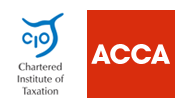We know accounting can be a daunting subject – and one of those things people often put to the bottom of the pile.
We thought we would explain some common accounting terms – ones that might seem tricky but are actually simple when you understand them.
1.What is accounting? Let’s start with the basics!
Accounting is the way we record, assess and communicate financial transactions and the process of keeping financial accounts.
2.What is a VAT Return?
A VAT Return is needed to calculate how much VAT a company should pay or even be reimbursed by HM Revenue and Customs.
It looks at your total sales and purchases across a three-month accounting period, the amount of VAT you owe for sales and the amount of VAT you can claim for purchases made by your business. You only need to do this if your business is VAT registered.
3.What are annual accounts?
Annual accounts provide a comprehensive report of a company’s financial accounts for the last financial year. The information is used to prepare the Company Tax Return for HMRC and estimate the amount of tax owed by a company.
4.What are self assessment tax returns?
Self assessment is a system HMRC uses to collect income tax. While tax is often deducted automatically from wages, pensions and savings, people with other income or those who are self-employed must report it in a tax return.
5.What is cash flow?
Cash flow is the total amount of money that comes into and goes out of a business. Net cash flow is the sum of all money a business makes. A cash flow forecast is a document estimating the amount of money that will move in and out of your business and includes your projected income and expenses.
6.What are dividends?
These consist of company earnings or profit which a business pays to shareholders to reward their investment. This could be as cash or additional shares.
7.What is single-entry bookkeeping?
This is a type of accounting system that records the financial transactions of a business. It records cash, taxable income and tax-deductible expenses going in or out of a business.
8.What does raising finance mean?
Companies may need to raise finance for several reasons such as fund growth through a joint venture, to improve cash flow or fund a change in business strategy.
9.What is IR35 Compliance?
IR35 is a tax legislation which applies when an individual works through an intermediary and provides services to an end-user client. The legislation was introduced in April 2000 to prevent Limited Companies taking a dividend where they acted as an employee.
10.What is succession planning?
This is the process of transitioning ownership of your firm to another person or firm. This often happens when the owner retires or cannot continue. It’s important to leave plans in place to create a solid foundation for the business’ future.




